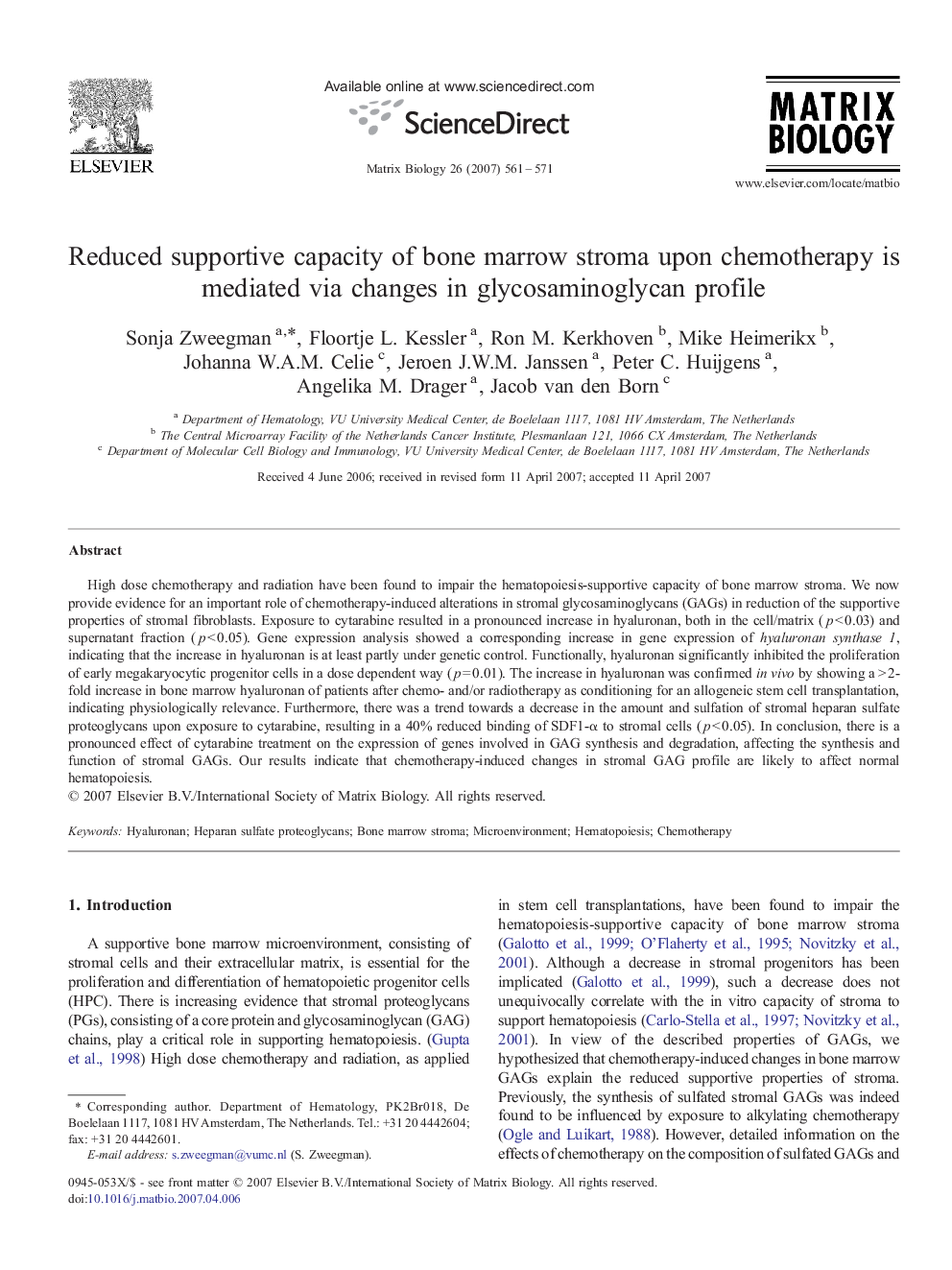| Article ID | Journal | Published Year | Pages | File Type |
|---|---|---|---|---|
| 2145094 | Matrix Biology | 2007 | 11 Pages |
High dose chemotherapy and radiation have been found to impair the hematopoiesis-supportive capacity of bone marrow stroma. We now provide evidence for an important role of chemotherapy-induced alterations in stromal glycosaminoglycans (GAGs) in reduction of the supportive properties of stromal fibroblasts. Exposure to cytarabine resulted in a pronounced increase in hyaluronan, both in the cell/matrix (p < 0.03) and supernatant fraction (p < 0.05). Gene expression analysis showed a corresponding increase in gene expression of hyaluronan synthase 1, indicating that the increase in hyaluronan is at least partly under genetic control. Functionally, hyaluronan significantly inhibited the proliferation of early megakaryocytic progenitor cells in a dose dependent way (p = 0.01). The increase in hyaluronan was confirmed in vivo by showing a > 2-fold increase in bone marrow hyaluronan of patients after chemo- and/or radiotherapy as conditioning for an allogeneic stem cell transplantation, indicating physiologically relevance. Furthermore, there was a trend towards a decrease in the amount and sulfation of stromal heparan sulfate proteoglycans upon exposure to cytarabine, resulting in a 40% reduced binding of SDF1-α to stromal cells (p < 0.05). In conclusion, there is a pronounced effect of cytarabine treatment on the expression of genes involved in GAG synthesis and degradation, affecting the synthesis and function of stromal GAGs. Our results indicate that chemotherapy-induced changes in stromal GAG profile are likely to affect normal hematopoiesis.
